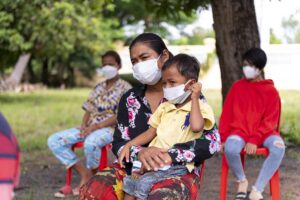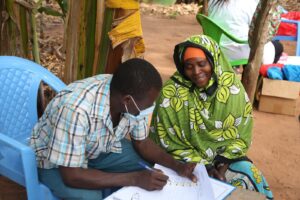The COVID-19 pandemic exposed global gaps in testing for communicable and noncommunicable diseases, and these gaps disproportionately affect individuals and families in low- and middle- income countries (LMICs). A staggering 81% of the population in LMICs don’t have access to many of the most simple tests available (Lancet, 2021).1
UNICEF has responded to this global gap in testing by developing the “Let’s Test” Toolkit, which aims to support Advocacy Champions in their goal to increase the use of quality testing in their own communities, through both increased supply and demand generation. This Toolkit, utilizing evidence based strategies, provides step-by-step guides and assets to support impactful and productive engagement with policymakers to advocate for increased supply of quality testing. Communications assets, facilitation tools, memorable info-bites and content for social media campaigns are also provided to drive informed community-level demand and use of quality testing in LMICs.
The “Let’s Test” Toolkit has been informed by research in five LMICs and was designed with consideration for global health best practices for engagement, advocacy and social behavior change communication (SBCC). Practical guidance is also included to enable users of the Toolkit to tailor advocacy and communication assets for specific country and community contexts.
Access the Toolkit here to learn more: lets-test.org.
1 Lancet Commission on Diagnostics: transforming access to diagnostics (2021)











